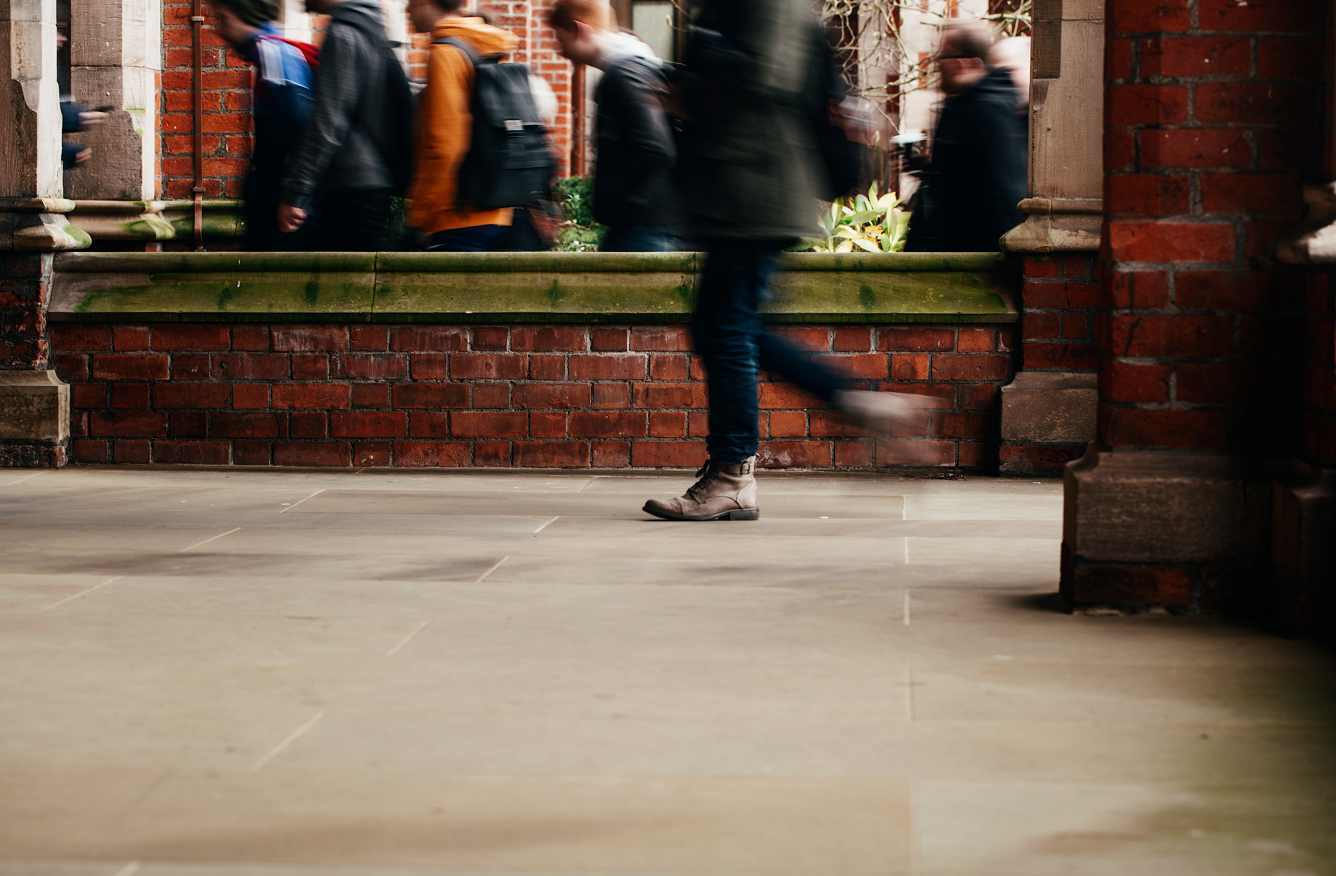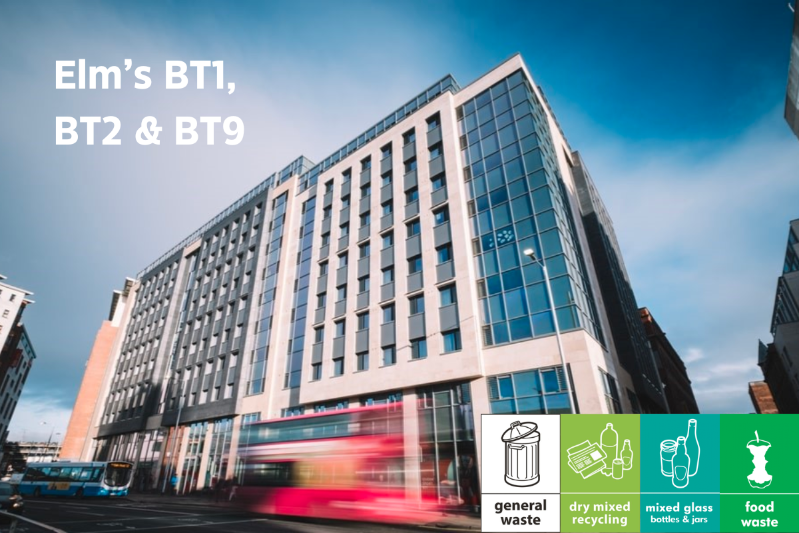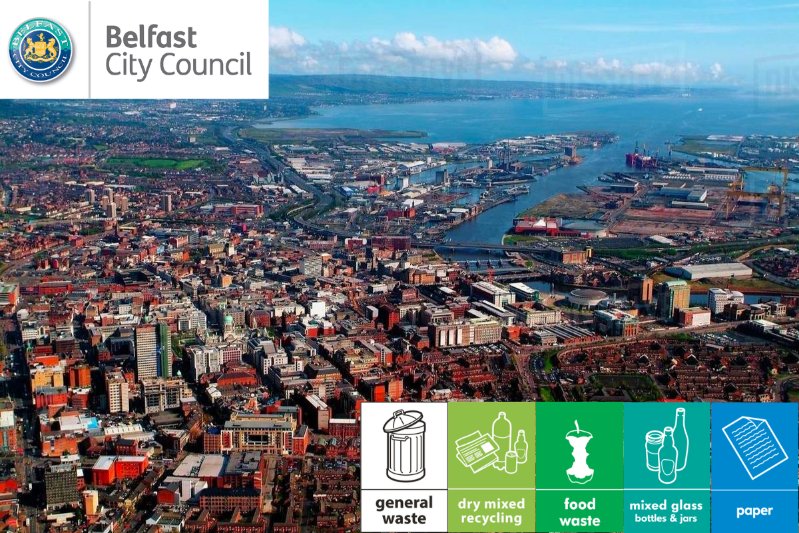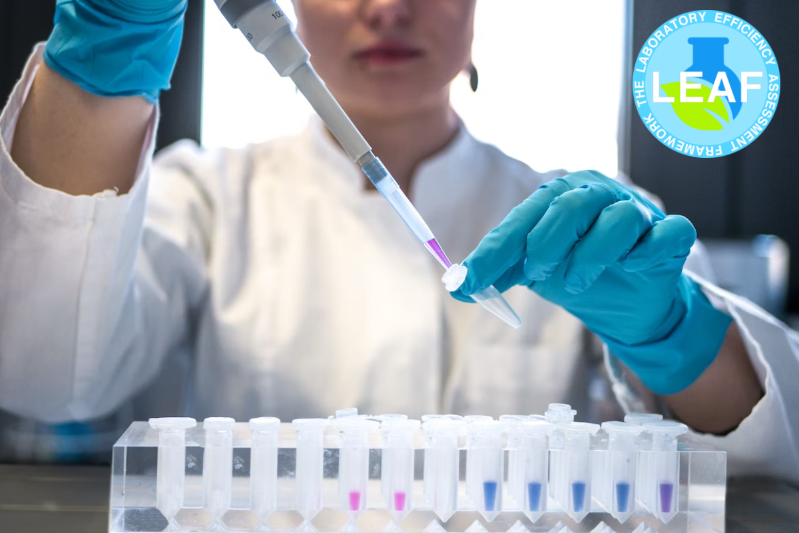
Laboratories across our campus are addressing sing-use waste by taking part in the Laboratory Efficiency Assessment Framework (LEAF) Programme.
Labs are vital in enabling our staff and students to undertake research. However, they are 'hotspot' areas for carbon and waste production. Technicians, academics and students from across Campus are taking part in LEAF and implementing small changes that are directly reducing lab waste.
This includes reusing what they can, repairing rather than replacing and sharing resources across their school and beyond.
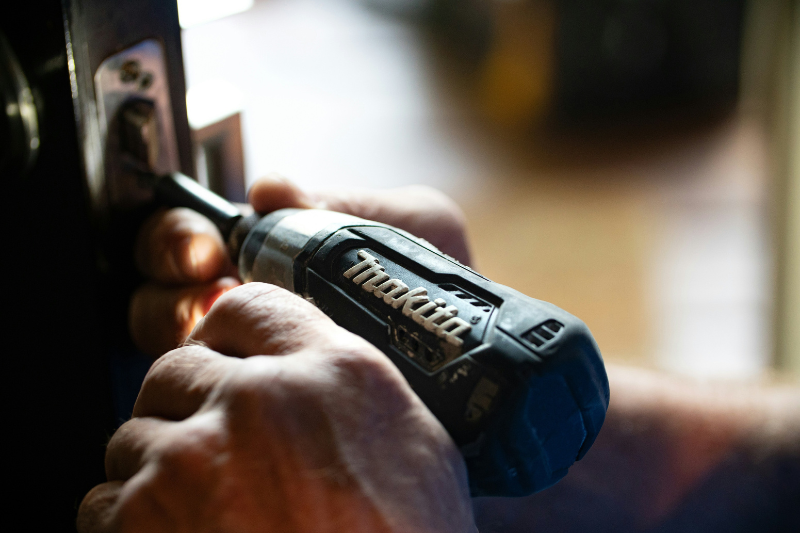
The Repair Fund enables labs to repair vital equipment rather than purchasing new.
To assist our community in implementing the Laboratory Efficiency Assessment Framework (LEAF) Programme a Repair Fund is available. This fund will provide labs with the opportunity to repair equipment rather than purchasing new. As a result, this will divert items from the waste stream whilst decreasing our purchasing.
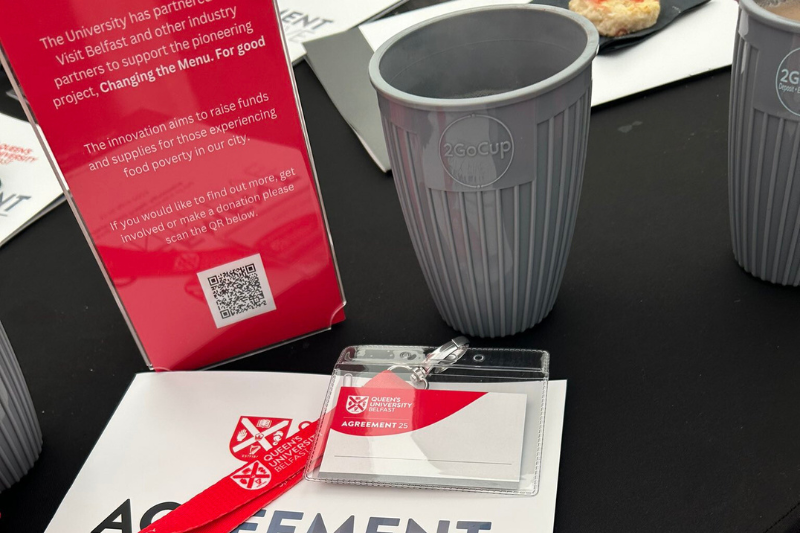
Campus Food and Drink tackle single-use coffee cups.
Campus Food and Drink launched their waste reduction initiative alongside the Agreement 25 Conference in 2023. The ‘2GoCup’ initiative provides all large-scale events within Queen’s University Campus with reusable cups rather than disposable cups. Launching their ‘2GoCup’ initiative within the Agreement 25 Conference prevented the use of over 10,000 disposable cups.
In 2024, Campus Food and Drink launched their first coffee cup return scheme in the Student Hub Café - making it Queen's first single-use coffee cup free café.
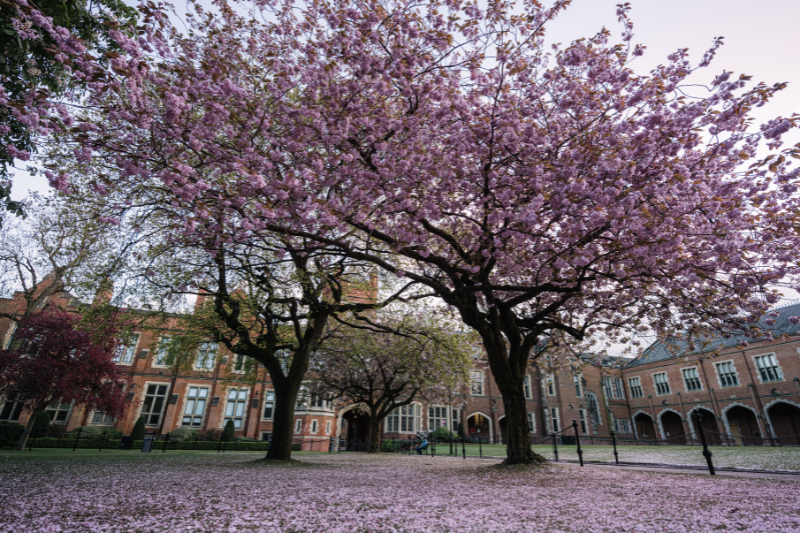
Warp It is accessible to all Queen's staff and can be used to donate, and acquire, furniture and other items.
Queen's has their very own corporate marketplace called Warp It. This marketplace allows staff to donate, and access items, reducing our carbon emissions associated with purchasing and disposing.
Warp It has also been opened to charities and schools, enabling them to access equipment from Queen's University. Please email sustainability@qub.ac.uk if you are a charity or school interested in gaining access to Warp It.
-
Paper and Card
All office paper waste for recycling is disposed of via white 'Confidential Waste' sacks provided by the University's waste management contractor and is securely shredded, baled and recycled. The confidential waste sacks must be stored in a secure area prior to collection.
What can be recycled?
- Confidential and non-confidential waste paper
- Computer & Copier Paper
- Coloured Paper
- Paper already shredded
- Envelopes
- Post it notes
- Newspapers & Magazines
- Journals (hard backing should be removed)
- Catalogues & Phone Books
- Thin card which can be torn
Please contact the Porter’s Office (028 9097 3068) to request the delivery of waste paper recycling sacks and cable ties to your area.
Paper recycling sacks are collected as part of a twice monthly, Wednesday collection. Where a School/Directorate have sacks ready for collection, the School/Directorate Building Liaison Officer (BLO) should contact the Porter’s Office (3068) before lunch time on Tuesday to be added to the collection schedule.
Where Schools/Directorates have sacks for collection every week they can be permanently added to the schedule.
The Waste Contractor should collect all sacks by 4.15pm every Wednesday. If the sacks have not been collected by this time contact Nicola Keown on 028 9097 1167 or nicola.keown@qub.ac.uk.
If your School/Directorate is regularly on the schedule but has more bags than normal, ensure this is communicated (with an approximate number of bags) to the Porters to ensure these can be collected as normal. If the Contractor is not notified of a large additional clear-out, it cannot be guaranteed that this will be completed.
If you require more bags than normal, please ensure you request extra at least one week in advance.
- Plastic Bottles
The plastic bottle bins located across Campus accept coloured and clear plastic bottles.
If you require a plastic bottle recycling bin, please ensure your School/Directorate Building Liaison Officer (BLO) logs a request via CAFM (Planon).
- Metal
The can bins located across Campus accept:
- aluminium and steel food cans
- metal biscuit and sweet tins
- clean tin foil, cake, and pie tins
If you require a metal can recycling bin, please ensure your School/Directorate Building Liaison Officer (BLO) logs a request via CAFM (Planon).
- Glass
Glass can be recycled at the following locations:
- Back of the South Dining Hall
- MBC, Whitla Medical Building
- Back of the NITC
- Back of the Health Sciences Building
- Riddel Hall
Mixed glass (clear and coloured) can be placed in the glass bins.
Please note that laboratory and Pyrex glass, and other non-container glass (e.g. window glass) and crockery cannot be recycled.
- Cardboard
All Cardboard is recycled within Queen's. Within your office the collection location for cardboard needs to be pre-organised with your Office Cleaner.
All cardboard needs to be flatpacked.
Please click here to download a cardboard collection point poster.
If you have a large amount of cardboard which needs collected, please ensure your School/Directorate Building Liaison Officer (BLO) logs a request via CAFM (Planon).
Other Waste
-
Batteries
Please dispose of your batteries in the 'battery towers' located in the following locations:
- Administration Building, Level 2
- Ashby Building
- Clinical Science A at the Royal Hospital
- David Keir Building
- Elms Village
- Geography
- Health Sciences Building
- McClay Library
- Medical Biology Centre
- Students Union
- Whitla Medical Building
If the battery tower requires emptying, please contact your Building Liaison Officer.
Larger industrial type batteries, such as lead acid car type batteries and nickel cadmium batteries used in emergency standby systems, should be logged via Planon by your School/Directorate Building Liaison Officer (BLO) with details of the items.
- Electrical Equipment
A request to remove electrical waste should be logged via Planon by your School/Directorate Building Liaison Officer (BLO) with details of the items (i.e. the numbers and type of equipment requiring disposal).
The table below summarises any charges for the disposal of Waste Electrical and Electronic equipment (WEEE):
Type of Electrical Equipment
Cost
IT equipment and secure data removal
No disposal charge. A collection charge may apply.
Fridges and freezers
£15 per domestic fridge
£125 per commercial fridge
A collection charge may apply.
White goods
No disposal charge. A collection charge may apply.
Laboratory equipment
No disposal charge. A collection charge may apply.
Collections will be coordinated via Planon. Please log a request 10 working days in advance of collection date.
All fridges and freezers must be empty and cleaned prior to disposal. If this is not undertaken they will not be removed. Please note, if your equipment was in use in a laboratory (or any other potentially hazardous) setting, the disposing School/Unit is responsible for appropriately cleaning the equipment and certifying it as clean, prior to its disposal.
- Fluorescent Tubes
Energy efficient bulbs and all types of discharge lamps (such as fluorescent tubes, compact fluorescents, compact fluorescent energy savers, SONs, Mercury, Metal Halide and others) contain toxic metals such as mercury, cadmium, and lead and are classified as hazardous waste. The tubes are recycled into their constituent parts by a specialist waste contractor.
Please ensure that all fluorescent tubes and energy efficient bulbs are stored in their original packaging. A request to remove any fluorescent tubes and energy efficient bulbs for recycling should be logged via CAFM (Planon) by the School/Directorate Building Liaison Officer (BLO).
- Print Toners
To recycle your Ricoh toners, please contact your local Department Print Champion. For further information on your Print Champion please click here.
All other toners need to be recycled via the appropriate toner website. This is the responsibility of the School/Directorate/Faculty:
- Books
Once you have received confirmation from your Director/Line Manager/Head of School that the specific books are unwanted, please determine which books are appropriate for 'Better World Books'. Please click here for more information.
Once you have determined which books are appropriate for reuse please place the books in ‘Better World Book’ boxes.
To receive ‘Better World Book’ boxes, and to organise collection of unwanted books, please ensure your School/Directorate Building Liaison Officer (BLO) logs a request via CAFM (Planon).
